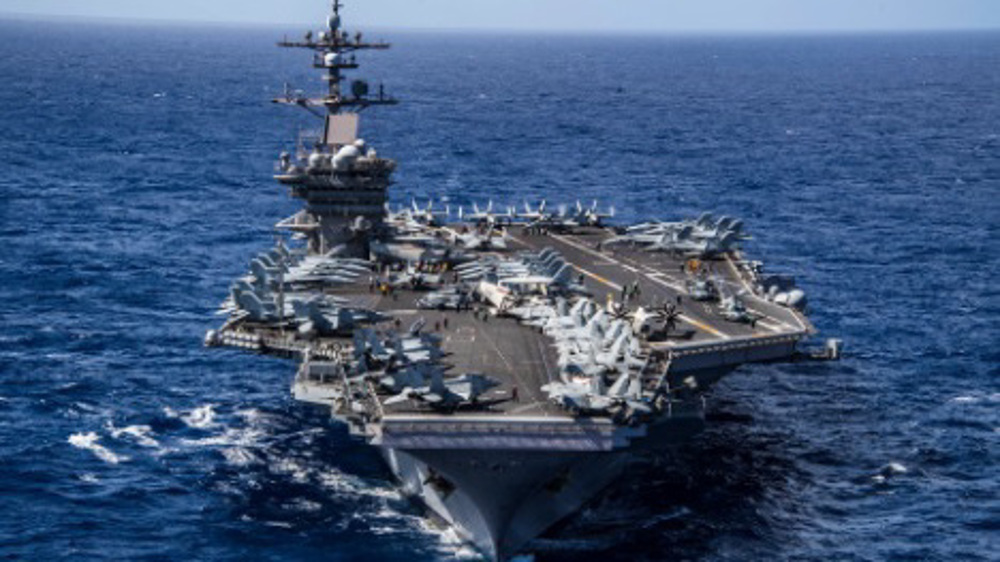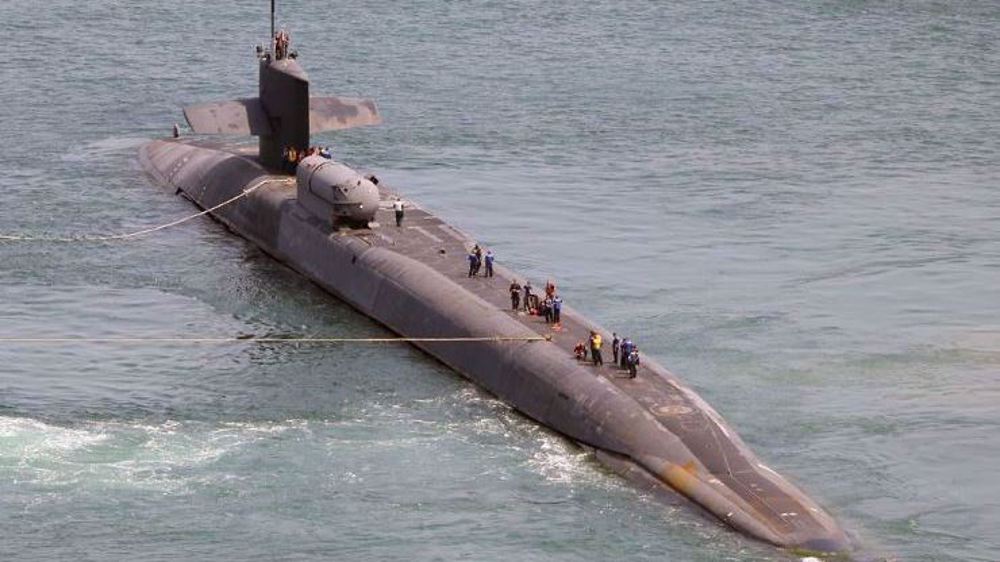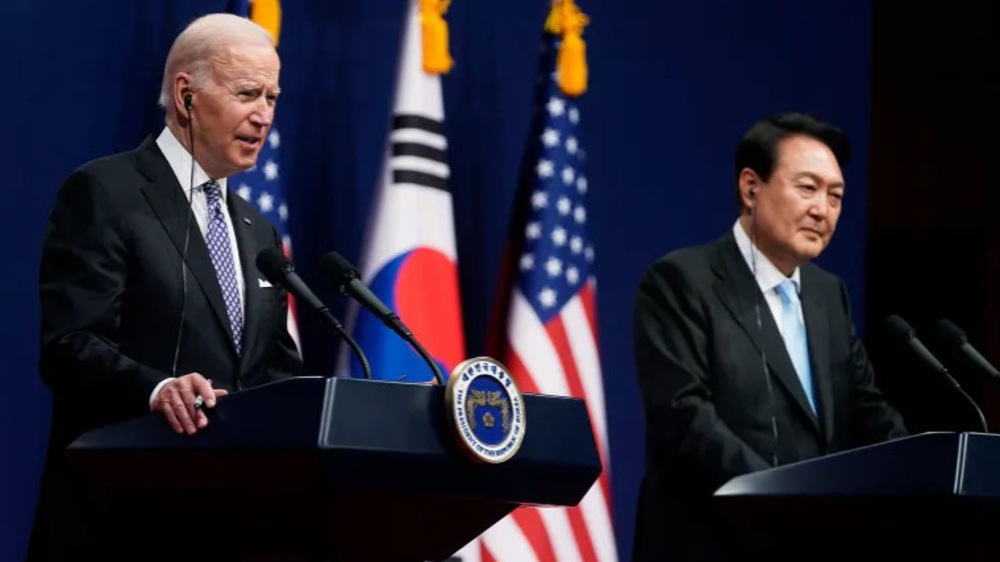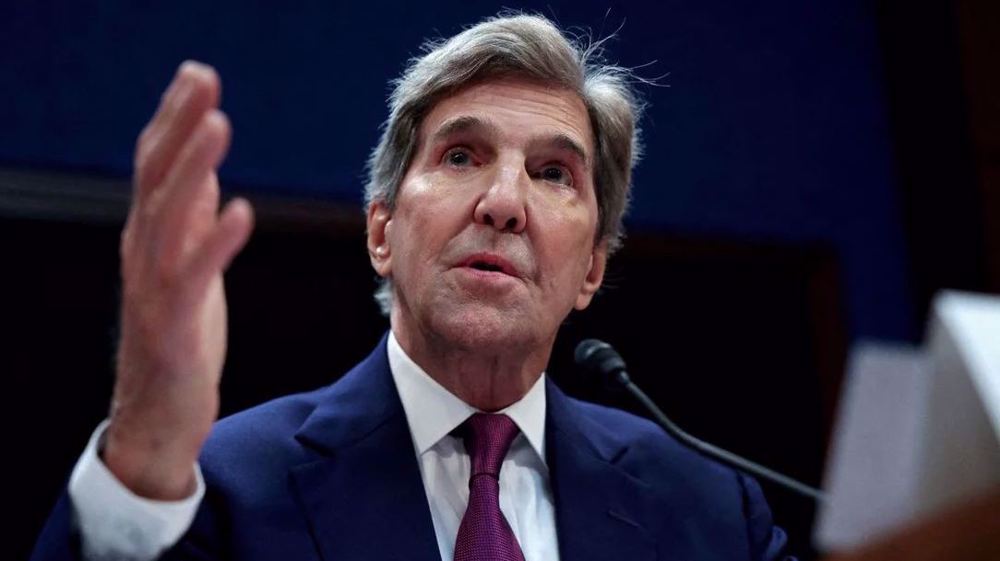US deploys nuclear-armed submarine to South Korea
The US military has deployed a nuclear-armed ballistic missile submarine (SSBN) to a port in South Korea for the first time in decades, a move that is likely to heighten tensions with North Korea.
The USS Kentucky, an Ohio-class submarine, arrived in the port of Busan on Tuesday, according to South Korea’s defense ministry.
The 170-meter-long USS Kentucky is one of the largest SSBNs in the world and is capable of carrying over 20 Trident-II ballistic missiles.
Docking a US SSBN in a South Korean port is a rare incidence. It marked the first visit by a US SSBN to the country in almost 44 years.
“As we speak, an American nuclear submarine is making port in Busan today. That’s the first visit of [an] American nuclear submarine in decades,” White House Indo-Pacific coordinator Kurt Campbell told reporters at a briefing in Seoul, where he was attending the first Nuclear Consultative Group (NCG) discussion with South Korean officials.
It is one of several recent agreements reached by the two countries in April in a flux of muscles against North Korea’s growing military might.
US President Joe Biden and South Korean President Yoon Suk Yeol agreed on the periodic deployment to the peninsula of strategic assets. They had also agreed to establish a bilateral NCG and to expand military exercises.
South Korean Defense Minister Lee Jong-sup claimed the submarine’s visit to the country was an important military move and “shows the allies’ overwhelming capability and posture against North Korea."
"This deployment of a US SSBN to the Korean Peninsula demonstrates by action that the US extended deterrence (commitment) to the Republic of Korea will be firmly implemented," Lee was quoted as saying, using South Korea's official name.
The US commitment to using "extended deterrence" refers to the American forces' willingness to use the full range of its military capabilities, including nuclear, to attack North Korea in case of war.
Meanwhile, US and South Korean officials took part in the first NCG meeting in Seoul on Tuesday.
In the meeting, they discussed ways to strengthen themselves against North Korea’s nuclear advancements.
“Any nuclear attack by North Korea against the United States or its allies is unacceptable and will result in the end of that regime,” the two countries said in a joint statement after the meeting.
The "regular deployment [to the peninsula] of strategic assets" had been expected after it was announced in a joint declaration during the summit between Yoon and Biden in Washington, DC in April.
North Korea condemns US provocation
Meanwhile, North Korea strongly condemned the agreement to deploy US nuclear assets in South Korea as the two sides start talks to coordinate their responses in the event of a nuclear war with the North.
The deployment of a US SSBN to the Korean Peninsula "may incite the worst crisis of nuclear conflict in practice," a North Korean defense ministry spokesperson warned last week, denouncing the US nuclear missile submarine's planned visit.
North Korea has vowed to respond proportionally to the agreement reached recently between the South and the United States allowing the deployment of American nuclear assets to the Korean Peninsula.
The agreement would "only result in making peace and security of Northeast Asia and the world be exposed to more serious danger, and it is an act that can thus never be welcome," North Korean leader Kim Jong Un's sister Kim Yo Jong warned, saying that Pyongyang would strive towards "further perfection" of its nuclear deterrent.
The North issued the warning in April, less than a week after Yoon and Biden made the announcement.
Meanwhile, tensions are running high on the Korean Peninsula after North Korea test-fired a Hwasong-18 intercontinental ballistic missile last Wednesday.
North Korea has been under harsh sanctions by the United States and the United Nations Security Council for years over its deterrent nuclear and ballistic missile programs.

Yemen asserts enhanced military readiness; takes US aircraft carriers under firepower

After second Signalgate scandal, Democrats call for Hegseth’s resignation

US warplanes strike Yemeni capital in new acts of aggression
Over 100 rabbis, cantors slam Trump for pro-Palestine campus crackdown
Nearly 30 Palestinians killed in fresh Israeli strikes on Gaza
VIDEO | Press TV's news headlines
FBI, local police raid homes of pro-Palestine activists in Michigan
Trump ratings low amid US economic turmoil
VIDEO | Trump tariffs: A wrecking ball!
Israel deprives Gazans of basic needs for ‘survival’: UN
South Africa has no choice but to support resistance against Israel's genocide in Gaza










 This makes it easy to access the Press TV website
This makes it easy to access the Press TV website